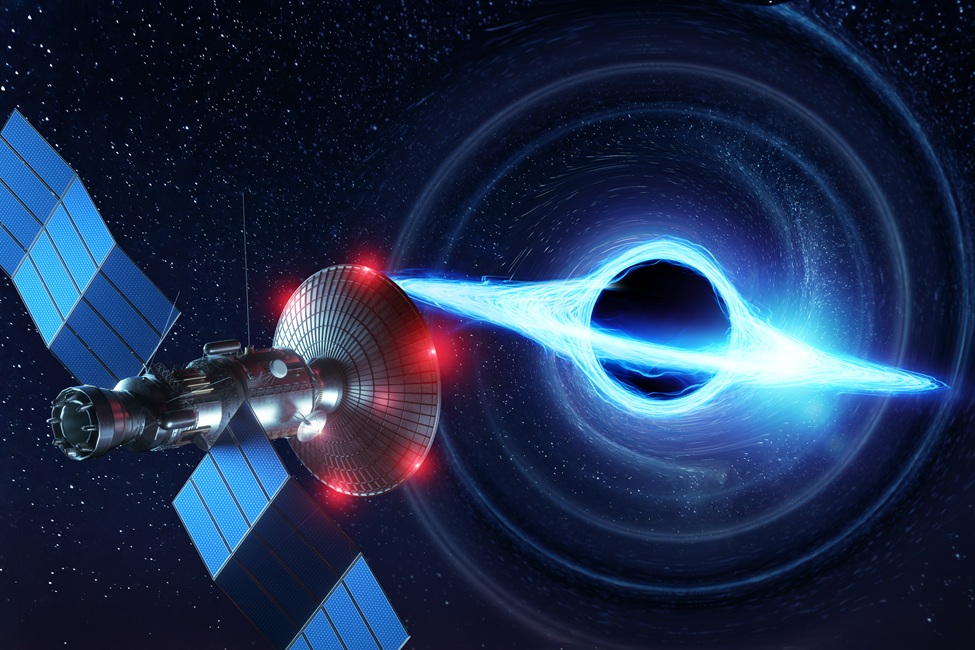Twist of Light: New Tool May Unlock Gravity, Quantum Mechanics Link

A team of physicists has uncovered a surprising new way to explore one of science’s greatest challenges: uniting the two fundamental theories that explain how our universe works – Einstein’s theory of gravity and quantum mechanics.
A team of physicists has uncovered a surprising new way to explore one of science’s greatest challenges: uniting the two fundamental theories that explain how our universe works – Einstein’s theory of gravity and quantum mechanics.
Despite decades of effort, no one has fully explained how gravity – which governs massive objects like planets and stars – fits with quantum mechanics, which describes the behavior of the tiniest particles in the universe. But now, scientists believe light may hold the key.
Warner A. Miller, Ph.D., co-author and a professor in the Department of Physics at Florida Atlantic University’s Charles E. Schmidt College of Science in collaboration with scientists at the University of Seoul and Seoul National University, South Korea, found that light’s polarization – the direction it vibrates as it travels – can behave in an unexpected way when passing through curved space. Normally, this polarization shifts slightly due to the warping of space by gravity, a well-known effect.
But the team discovered something deeper: by carefully choosing how the light is measured, they could trigger a strange effect called non-reciprocity. Findings from their study were published September 2024 in Scientific Reports.
“Non-reciprocity means that light behaves differently when it moves forward compared to when it goes backward,” said Miller. “In other words, it doesn’t ‘undo’ its twist, even if it retraces its path. This challenges the conventional belief that light always returns to its original state after traveling a closed loop, especially if its path is influenced only by gravity.”
The key to this discovery lies in the quantization axis – essentially, the angle at which a polarizer measures the light. By adjusting this axis, the researchers could greatly enhance the effect. In fact, the shift in light’s polarization angle – known as the Wigner Rotation Angle (WRA), which arises because successive motions and rotations in spacetime do not commute (non-commutativity of Lorentz group) – can become up to 10 times larger than what gravity alone would cause, even in extreme environments like near a black hole.
“We’ve found a way to amplify the tiny effects gravity has on light’s polarization by cleverly tuning the system,” said Miller. “This gives us a powerful new tool to probe how gravity and quantum mechanics might be connected.”
To test their predictions, the team proposes building an astronomical interferometer – a highly sensitive instrument composed of satellites working in space. These satellites would be equipped with specially oriented polarizers designed to detect the amplified polarization shifts. They also suggest two specific designs. One combines a Hong–Ou–Mandel setup with a Mach–Zehnder interferometer, known for their precision and ability to filter out noise. The second setup uses a highly controlled light source to compare quantum predictions with classical expectations.
These experiments could verify whether this new non-reciprocal behavior, induced by the non-commutativity of Lorentz groups, truly reveals how quantum properties of light – such as spin and polarization – interact with classical gravitational fields. Importantly, this effect could arise from any kind of polarization rotation, not just those caused by gravity, opening the door to tests of new physics, including possible violations of Einstein’s Equivalence Principle or clues to quantum gravity.
“This is more than just a new experiment – it’s a new way to ask the deepest questions in physics,” Miller said.
While these experiments are designed for space, the scientists also believe that some of the effects could be tested in a laboratory, using mirrors and polarizers to simulate the necessary conditions. If proven, these non-reciprocal shifts in light’s polarization could become a powerful tool for exploring the universe, helping scientists probe the fabric of space, the nature of light and the still-mysterious link between gravity and quantum mechanics.
This study was developed by Hansol Noh, Ph.D., first author, University of Seoul, and Seoul National University, in close collaboration with Miller; Paul M. Alsing, Ph.D., co-author, FAU Department of Physics; and Doyeol Ahn, Ph.D., senior author, Institute of Quantum Information Processing and Systems, University of Seoul.
This work is supported by the Korean Ministry of Science and ICT through the National Information Agency (NIA) and the United States Air Force Office of Scientific Research (AFOSR).
-FAU-
Latest News Desk
- FAU Lab Schools Recognized as Cognia School of DistinctionA.D. Henderson University School and Florida Atlantic University High School has been selected as a 2025 Cognia® School of Distinction.
- Study: 'Man's Best Friend' Slows Cellular Aging in Female VeteransPioneering research from FAU and collaborators shows training service dogs slows biological aging in female veterans - especially those with combat experience - marking a breakthrough in mind-body health.
- FAU Lab Schools Shine Nationwide in Niche RankingsA.D. Henderson University School and Florida Atlantic University High School ranked among the best in the country and state, according to Niche in its 2026 rankings.
- FAU Joins Neuroarts Academic Network to Bridge Art, Brain and HealingFAU will help to lead this global effort to harness aesthetic experiences for brain health, as one of just two Florida universities and about 35 worldwide in the network's initial working group.
- Chatbots the New 'Doc?' Exploring AI in Health Behavior CoachingChanging habits is tough. AI tools like ChatGPT now simulate motivational interviewing (MI), showing promise - but can they match MI's core and spark lasting change? FAU researchers explore the potential.
- FAU's MBA in Sport Management Ranks Third in Global RankingsFlorida Atlantic University's MBA in Sport Management program online ranked No. 3 worldwide for 2025, according to SportBusiness, a London-based sports intelligence and analysis firm.






